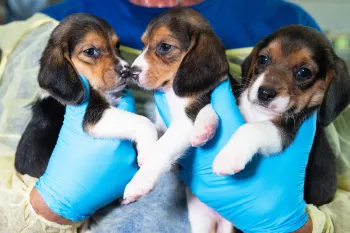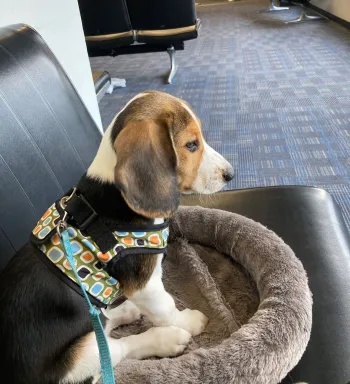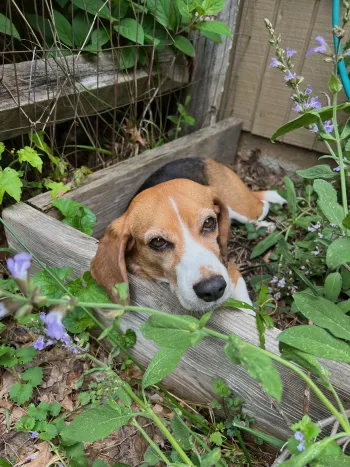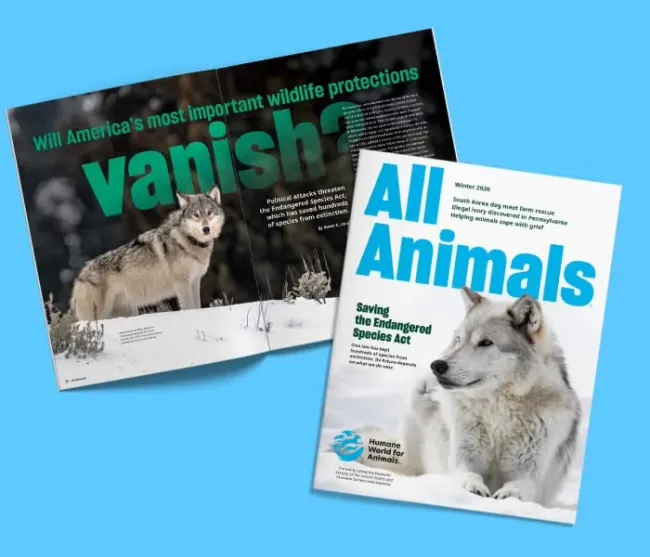Three years ago, a male beagle was born into the rows of kennels at a research breeding facility in Cumberland, Virginia, operated by a company called Envigo that sold dogs to animal testing labs. It was May 18, 2022—the day the U.S. Department of Justice served a search warrant and started the process of seizing more than 445 dogs for treatment of urgent medical problems. Envigo agreed to shut down the facility after investigators found violations of the Animal Welfare Act—inadequate food, housing and veterinary care. And the Justice Department turned to Humane World for Animals for help.
Over the course of two months, our Animal Rescue Team and partners removed the remaining 3,700 dogs from the facility and transferred them to partners who placed them with adopters. The beagle puppy was 8 weeks old when he, his mom and his littermates arrived at our care and rehabilitation center in Maryland. Adam Parascandola, who oversaw the massive operation from May into early September as vice president of the rescue team, was looking to adopt one of the beagles and center staff suggested the puppy. Parascandola named him Enzo.
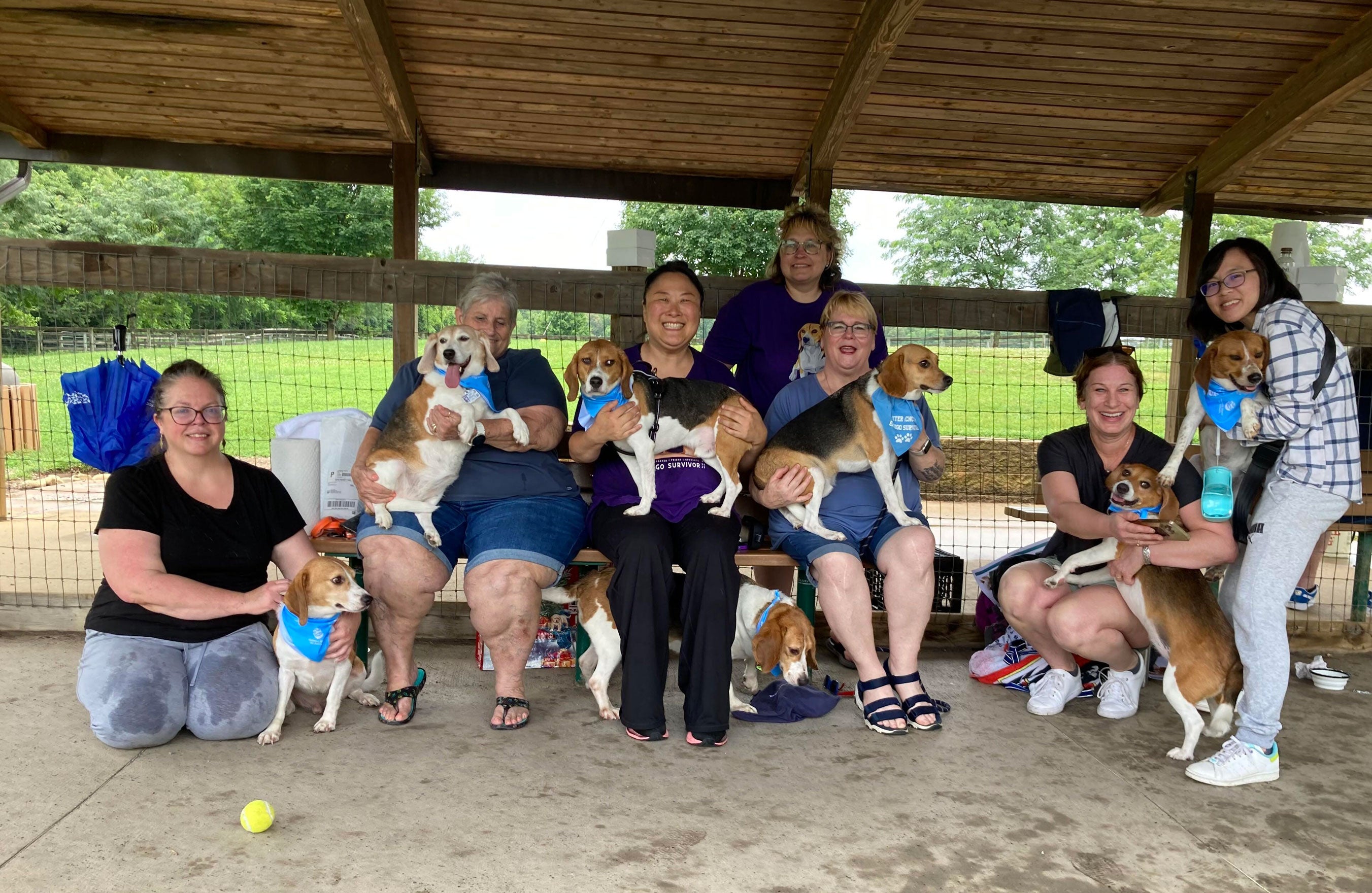
Envigo survivors in advocacy bandanas and their families celebrate three years of freedom at an Envigo Beagle Reunion on July 26, 2025, in State College, Pennsylvania.
Many of those who adopted beagles take them for walks wearing “Envigo survivor” bandanas to invite questions from passersby. Kelly Williams, formerly an editor at Humane World, doesn’t advertise that Franny, the mother dog she adopted at 3 years old, came from the Envigo facility. But Franny educates nevertheless.
“If someone comes up to pet her, she’s nervous. I always offer an explanation. [Their response] is universally shock and disgust. Having her as the living breathing embodiment of what this does to dogs is helpful.”
/The HSUS
Related stories
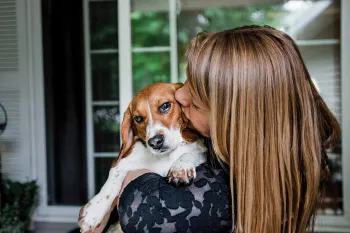
Kendra Stanley-Mills/AP Images for the HSUS
Beagles freed after Humane World for Animals (formerly called HSUS) investigation finally get the homes they deserve.
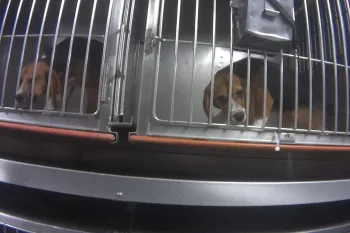
The HSUS
Some dogs have already been put down; the Humane Society of the United States hopes to help the others suffering in lab experiments.

Bryan Mitchell/AP Images for The HSUS
How we’re fighting to end experiments on dogs and get these animals the homes they deserve.
